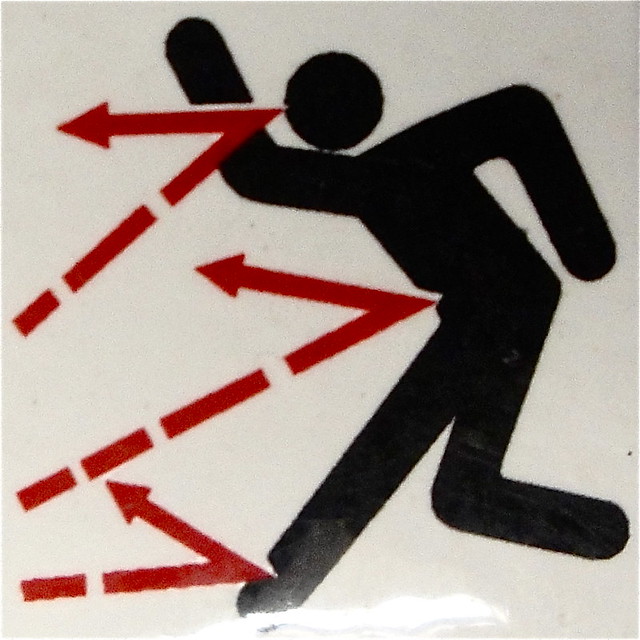You fling those emails away from me, like a shield deflecting arrows, poisonous tranquilizing darts.
You take over my email interface with a big blue "unpause" button, daring me to unplug the dam. You are a dike holding back the flood threatening to inundate my life with non-urgent, vapid, moist emergencies.
I sit at my computer, trained by the incoming emails, to wait more. Wait for another fire to put out, another flame to quell. It's become a sick habit, a twisted pleasure. I'm on it, I'm busy, I'm responsive. What for? And at the cost of what?
Now, when the dam unleashes its fury at 6am, 1pm, and 3pm, I see a small litany of unimportant requests. I deal with them in 5 minutes. I don't waste time waiting for them. I don't intrude upon my family, my fuel, my loves, waiting... waiting... waiting... for all the requests that might make me feel important.
Research shows how much energy it takes to shift attention between one's "deep work" and shallow work. Research shows how damaging email is to the psyche, to our sense of being overwhelmed by external pressures. I have succumbed to those pressures, and have seriously wondered how I could possibly survive in my job without my addiction to email. I respond to emails when I get up at night to pee, I respond to emails in the middle of other meetings, and I respond to emails while my children are trying to get my attention. My stupid smart phone makes this impulse to responsiveness all the more seductive.
Small fires are so fast to put out. Just give me a second, I have to just write this one quick thing.
____________
Here's the genius of Boomerang, for someone like me. I'm not required to exert any kind of will power. Turning off my phone's email ability hasn't worked. Scheduling email times hasn't worked. Telling others that I don't check email except at certain times most definitely doesn't work. Self-restraint DOES NOT WORK. The quick-hit of email responsiveness is too addictive. You know what I mean, right? If I'm not doing anything else, at least I'm performing a virtual persona of productivity.
This is just not acceptable anymore, for reasons I won't go into now.
______________
Suffice to say, Boomerang is your solution if you suffer from something similar. Every time I have that impulse to check email on my phone: too bad! Every time I want to stop grading papers so I can check email (it's so much more interesting, no?), too bad! Every time I want to avoid my children's requests to see if more urgent requests are transmitting online, too bad! Every time I want to avoid taking out the trash, too bad! Every time I want to pretend I'm so important in front of somebody who intimidates me, too bad!
I just simply must do something else with myself than open up my fucking phone. It's brilliant.
Boomerang is also so genius because of the language it uses on the button it highjacks your email interface with-- "Pause"/"Unpause." When you're in a "Pause" timeframe, Boomerang takes over your email and lets you know! You can override the pause, and unplug the dam. If you make the fateful decision to click on "Unpause", then God save your soul. A little time clock thing will start, and, like a bomb going off, you'll start to see your inbox fill up. Boomerang makes it hard to open the floodgates, discouraging you to make that decision whimsically. The psychology of this is perfect for me. I can't easily unpause on my phone; I have to be on my computer to do so. The dam is breachable, but it's not easy. Your interface is always reminding you to "Pause" again.
Let's pause on this idea of pause. I have read several books on the value of the sabbath, the pause built into our rituals. I have read at length about how our current work ethos punishes pausers. Extract labor, extract labor, extract labor-- to think of this in Karl Marx's terms. The interstitial moments, when nothing is happening, where nothing is taking place, have no value in contemporary life. My loved ones send me articles cut out about how we need a pause from technology. I find beautiful articles in Buddhism magazines about the detriments of technological distraction. I "get" why my email addiction is a problem. But I haven't been able to translate that knowledge into action because, frankly, I'm weak when it comes to discipline and will power. Don't even ask about how much wine I drink, or the egregiousness of excuses I can muster to justify getting an iced mocha on any given day.
For a weak soul like me, Boomerang is some kind of savior. I'm sure I sound like a proselytizing fiend, and I'm not getting paid to write this. I genuinely want to share my story with you, dear reader, of an addiction solved and a soul saved from the torturous drip, drip, drip of the email inbox.
What a genius name! Can't touch me!

Update: despite no mention in the downloading process (I'm also not very detailed in my reading of fine print. See above, reasons why I need more time afforded by getting off email: because I'm BUSY!), it turns out this app costs money at some point.
I'm currently exploring its beauty, and wondering whether I can manufacture the kind of will power required to do what Boomerang does for me. I'm also wondering why Google hasn't already created this functionality.... Anyway, sorry if I misled anybody, and get ready for that beautiful blue "Unpause" button to just go away.
I think I'll pay, as my friend Janelle says, because it's like you're getting your money's worth in email vacation!
